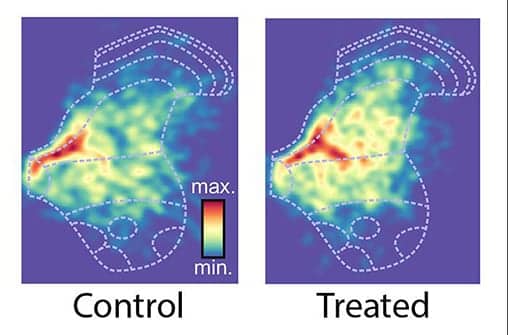
Creating an inflammatory response may have a significant impact on how stroke and spinal cord injuries are treated. The colored map shows changes in the nervous system after inflammation and increased rehabilitation training. (Photo courtesy of Brain: A Journal of Neurology (Oxford Academic)
Inflammation may play a key role in helping a spinal cord injury (SCI) patient relearn lost motor skills, such as grasping objects, according to a new study from the University of Alberta.
U of A spinal cord researchers Karim Fouad, a Canada Research Chair in the Faculty of Rehabilitation Medicine, and Abel Torres Espín conducted the study, published recently in Brain.
By studying inflammation and rehabilitation training in rodents, they discovered that creating a mild inflammatory response improved a rat’s ability to relearn how to pick up pellets months following a spinal cord injury.
“Time is of the essence,” Fouad explains, in a media release from the University of Alberta.
“It’s usually impossible at the early stages to train at a high enough intensity to regain motor functions. If patients can’t work on recovering those skills effectively, those skills are lost forever and cannot be regained. If we can elicit similar responses in patients, this has huge potential to improve recovery,” Fouad adds.
Fouad’s team also ran studies to explore training intensity, and found the amount of reaching and the intensity matters to increased recovery. For the rats that were training more frequently, recovery was markedly improved, as mapping of stained nerve cells showed an increase in connectivity.
“After an injury, there are thousands of axons that are all trying to reconnect,” Fouad says. “Rebuilding tends to be random, but with training it can be more deliberate and successful.”
In order to develop a clinically relevant approach to modulate inflammation, Fouad’s group is currently exploring which specific aspect of inflammation is key to nervous system rewiring, the release concludes.
[Source(s): University of Alberta, EurekAlert]




